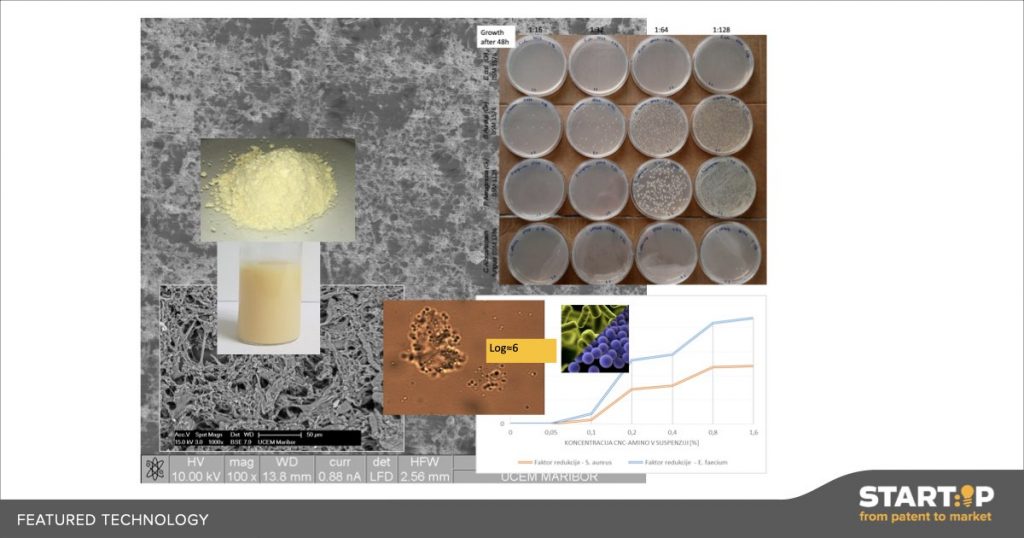With the growing awareness of antimicrobial resistance, new antimicrobial materials have gained importance in many applications. This group of researchers have developed microparticles with long lasting antimicrobial properties based on cellulose, a fibre abundantly found in plants. The product is an alternative to nano-biocides, such as metal and other engineered nanomaterials, which are limited by their toxicity.
START:IP
Technology Abstract
Bio Based Antimicrobial Microparticles
Bio Based Antimicrobial Microparticles - an Alternative to Toxic Nano-biocides
Bookmark0
The researchers used modified microparticles made from cellulose nanofibrils, the material that forms tough fibres in wood and plants. In this process, the cellulose nanofibrils are modified to form a micro-sized network structure that can act as a molecular net that traps bacteria and prevents them from growing. What’s more, they have also created the product in a formulation that can easily be applied to surfaces, meaning you can apply these antimicrobial properties to textiles, food packaging and filters, to name a few examples. As such they can serve as an alternative to nanobiocides such as metal and other nanoparticles that are toxic for humans and the environment. These microparticles could also be used to scavenge other harmful contaminants found in industrial wastewater or meteoric waters, such as pesticides, in/organic anions (fluorides, chlorides, nitrite, etc.) and molecules (e.g. pharmaceuticals).
If you click the button and fill out the form to be “matched” with a technology, we will introduce you to the scientist / transfer manager of the respective research institution. In this way, you immediately have the chance to receive more detailed information and to start discussions about a possible joint project.




